Interview: Tony Todd on CANDYMAN and the State of Horror

Tony Todd is a deeply beloved horror icon with a well-earned place among the pantheon of horror actors like Robert Englund, Kane Hodder, and Gunnar Hansen. If there was a horror Mount Rushmore, his face would certainly be on it and it is entirely because of his soulfully terrifying performance as Candyman in 1992.
The subject of Candyman has been very hot in the past couple weeks ever since Jordan Peele announced that his production company, MonkeyPaw, will be helming the next installation. Many people are saying it’s a reboot but according to Variety it will be a spiritual sequel to the original and will return to Cabrini Greene.
A lot of people, myself included, are pretty relieved that this is not going to be a remake or a reboot – because we’re sick of complete reimaginings of our beloved horror properties, however, as fans, we still want more from the original films but we want to see new life breathed into them – different perspectives, different directors, different storylines but hopefully in this case, not different actors. It has not been announced yet but, my fingers are tightly crossed in hoping that Tony Todd will return as Candyman.
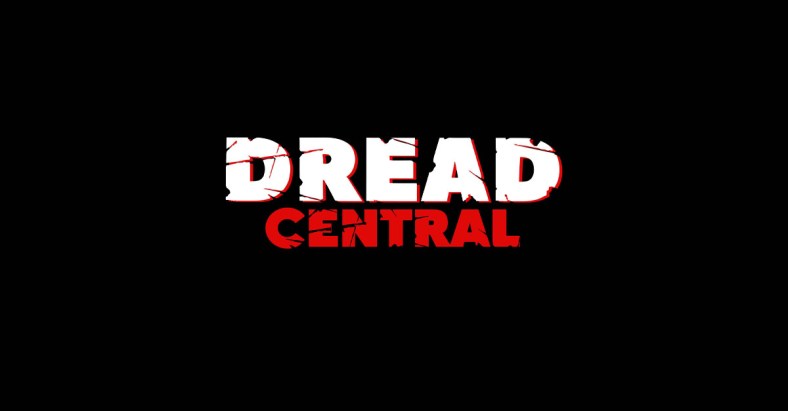
The truth is, nobody could have pulled off such a memorably chilling performance as Tony Todd, and nobody else could possibly do justice to playing as the hook handed character that Tony turned into an icon singlehandedly (get it?!).
Tony just accepted a lifetime achievement award at The New York Horror Film Festival for his body of work across such films as Platoon, The Night of the Living Dead remake, The Crow, Candyman, The Final Destination Series, The Hatchet Series, and most recently Hell Fest.
Speaking to him was a tremendous honor, we talked a lot about his acting process, music, movies, horror and he gave us his two cents on Jordan Peele’s Candyman.
Let’s kick it off with the top 3 pieces of advice & insight from Tony Todd:
- Be Well Rounded. Tony emphasized that his acting training included a multitude of different disciplines that seemingly were unrelated to acting like ballroom dancing, horseback riding, and fencing, all of which deepened his understanding of movement, art, and ultimately served his acting. Exposure to all of these disciplines taught him larger concepts about humanity and art that better enabled him to find truth in the scripts he read and the parts he played. This is a huge concept that a lot of artists miss. To this day he frequently attends multiple museums and travels extensively. Actors, directors, writers – creatives of all stripes thrive best when they are exposed to multiple cultural disciplines. So go to museums, travel, immerse yourself in different things that enable you to grow you as a person, it all serves your art at the end of the day.
- Find a partner who gets it. Acting along with just about any creative endeavor is incredibly difficult, and requires long stretches of time away from home and years of uncertainty. When seeking a partner, it behooves you to find someone who can support you emotionally and not discourage or distract you from your craft or your pursuit. It’s easy to get bogged down by the minutia of reality which compounds into major digressions that take you away from your work. Find someone who can understand the struggle, and the hours and energy spent on your project and can give you the fuel to keep going. Not someone who’s going to nag, guilt, or distract you from your mission.
- Trust the process – There’s no expectation on when you’re supposed to excel or bloom. Tony was 32 when he was given his first big break in Oliver Stone’s Platoon and 38 when he got his signature role in Candyman. It’s a perilous business and you can’t lose sight of that. As Tony says, ‘don’t suddenly give up on what you spent years building.’ You never know when it’s going to happen, so all you can do is trust the process, and be prepared.
- Bonus, never hear no. When Adam Green’s people approached Tony Todd for his part in Hatchet, Tony originally said no. But, after a personal phone call from Adam himself, and the endorsement of Kane Hodder & Robert Englund, Tony soon said yes, and it paid off as Hatchet has become one of the most significant new slasher franchises in decades. This is a lesson in persuasion. Don’t take no for an answer. Adam Green was able to convey his passion to Tony better over the phone, as opposed to through his agent, so he called him directly and charmed him into taking the role. It’s critical to not only be persistent but excel at personal communication and the power of persuasion. It can make all the difference.
Dread Central: Tony Todd, it’s a pleasure to meet you, sir!
Tony Todd: It’s a pleasure to be here. Fellow Manhattanite.
DC: Yeah, go New York! So as any actor, you frequently refer to yourself as a theater actor.
TT: Absolutely.
DC: What keeps drawing you back to the stage?
TT: Well, it’s not that it’s exclusive, but it’s more a matter of honesty. I got my master’s in theater, and the way we were trained was we did all kinds of cardinal arts. By that, I mean we did fencing at five in the morning. We did horseback riding. We did the ballroom arts. We did all those things that they don’t emphasize, anymore, that would help complete you, not only as an actor but as a Renaissance person.
We studied all the classic works of literature, from Shaw, Ibsen, Shepherd, et cetera. And you look at a script, and you try to get to the truth of whatever that particular theme or story is … I have to find the truth first. I’m not in it just to illicit thrills and spills and shocks and titillations. If you do the truth first, it’s gonna be that much more impactful.
DC: And working on the stage helps you find more truth?
TT: And it helps you develop that 360-degree perspective. It’s not just a slice, or not just a caricature, not something that’s thrown away. You want something that lasts forever, hopefully.
DC: That’s really interesting. So it’s the kind of Renaissance sensibility that the stage demands that keeps you coming back?
TT: It demands respect, and it demands telling the truth. When you do a play, you’re doing eight shows a week, and you have one night off per week, so no matter what you’re going through … they demand that when the play starts and the curtain rises, that you’re at ground zero, and you’re willing to commit to that character.
There’s that company of just joy. Once you have that company, there should be no competition within that circle of people. They’re all there to commit to a higher purpose, which is great truth.
DC: Yeah, when you’re working on a stage among a whole troupe of other actors. You’re all in it together. There’s a unique unity and camaraderie that stage actors have together.
TT: And respect for each other. Trusting that whoever was responsible for bringing this eclectic, eccentric group together, that he knew the chemistry levels to emit to. Cause you gotta have that.
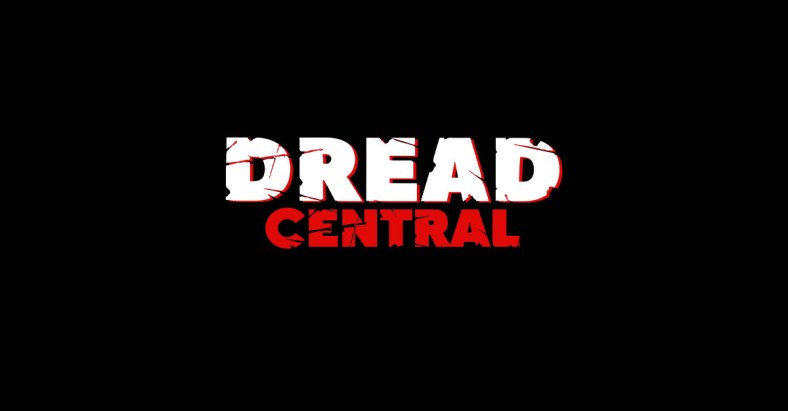
DC: So I want to talk about Hell Fest. Greg Plotkin mentioned that when you met for the first time, he had a pre-existing backstory for your character, and then when he told it to you, you told him yours and the backstories were identical.
TT: Were practically identical. That’s when you know you have synergy.
DC: Cool.
TT: As far as Gregory, I usually try to have a dialogue with the director before we go on set. At least have lunch, coffee, a face to face, so that we clear out some stuff, image-wise. Didn’t have to do that with Gregory. I showed up on set. We’re in the biggest water park in Atlanta, which they had access to for like, eight weeks.
I’d never been welcomed so warmly and effusively by a director in my life.
Here in Hollywood, you get a lot of people that get full of themselves, and they forget the little civility things of just saying hello to somebody, welcoming them to their world. Gregory said “I’m so genuinely excited that you’re here. Jordan Peele says hello. He’s a big fan.” All these things, you know? Which just helps an actor, of course, put their best foot forward. And so yes, I wanted to deliver for this guy.
DC: So you said that the key to a good franchise is synergy between the actor and the director.
TT: Yes, and/or writer/creator.
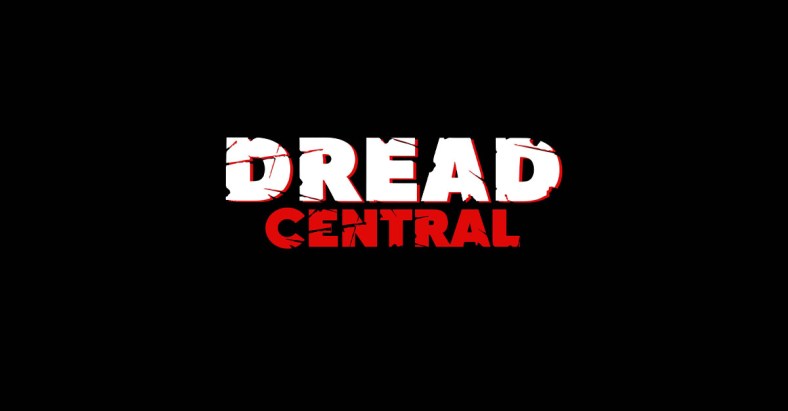
DC: It sounds like you’ve had a number of these in the past: Adam Green, Clive Barker…
TT: Yes. Definitely. And Bernard Rose.
DC: What are some of the keys to establishing that type of collaborative synergy? I know it’s rare, but what could directors and writers do to better include their actors, so it’s more of a collaboration?
TT: Well, using Adam Green as an example, I first met Adam at a fan event. Years ago, three years before he made Hatchet, he was a fan in line, and you know, bought a couple things and talked to me for about a half hour and told me he wanted to be a filmmaker. I’m an optimist, so if anybody tells me they’re interested in something, I’m gonna give them time to express that and to tell me what their dream is and what their obstacle is, so he laid it out, and then three years later, I get a call saying this guy Adam Green has got a film called Hatchet.
‘It’s only one scene, but he would love for you to take a look.’ I actually turned it down because I wasn’t really interested in doing a cameo, at that point, but he got my number, called me and convinced me that in the second one, he would make it up to me. So I took a chance, and I also got a call from Kane Hodder and Robert Englund saying you know, “We’re gonna do it. Come on, do it.”
DC: Whoa!
TT: He was able to convince some other people, so anytime a person can have that kind of influence, I gotta respect it.
He’s also such an infectious, fun loving person. He just loves film, and that translates and carries over, you gotta have somebody at the top that just loves to work. You don’t want to be in a situation where someone’s doing it for a job. You’re on set. You’re there 12, 14 hours a day. Let’s have as much fun as we can have, and also create a safe space where the actor and different department heads can feel that they’re able to do their best work and put their best foot forward. You do that, half the battle is over.
DC: Did you remember the conversation you had with him at the conference when he called you for Hatchet?
TT: Yeah, yeah, and I reminded him of it. I said, “I am so proud of you that you actually made your dream come true because this is a tough business. Lot of people want to be in it. Lot of people get in it, and then burn out. The school I went to, it’s a famous school, Trinity Rep Conservatory, won two Tony Awards for excellence. I had 23 people in my graduation class. There are three of us that make a living in our particular class. One is a sound man. One did the Phantom, several tours, and then me.
I used to get calls, and people said, “What’s the difference? How did you do it, and we didn’t do it? I don’t know what happened. I got distracted by life. I got married. I had to get a job.” And I said, “It’s perseverance. Chutzpah.” Being a New Yorker. It’s just not having an expiration or expectation on when you are supposed to excel, or when you’re supposed to bloom. Just having confidence that it’s going to happen.
Get that side job that’s gonna make sense for you. As actors, bartending is always good, particularly in New York City. I found a great bartending job and I could also go to my auditions. It took maybe three years before I finally landed, which was Platoon, by the way. I got Platoon right out the box, bartending.
I met Oliver Stone on a Saturday. Monday, I had the job. So I tell them, “You just never know when it’s gonna happen. You just gotta be prepared for when it does.” And why would you give up on something that you put in five years of training, and your parents’ money, or a scholarship, to do?
DC: Mm-hmm. Doesn’t make sense.
TT: That just makes no sense, but this is a perilous business. For everyone that succeeds, I know there’s 100 people that had their dream shattered, and maybe that’s what makes it so special. I’m proud of success, and then I can do the big budget films, like Hell Fest and The Rock, which allows me to do ten other independent films.

DC: You seem like an actor who gives back to aspiring indie directors.
TT: I know where they come from. I grew up poor. I didn’t even know I was poor until I was 13. I was raised by my aunt, who saved my life. She showered me with love, and every summer, I was in a different program, whether it was geology, acting, public speaking, the Boy Scouts. My first trip on a plane was to the World Jamboree in Tokyo, I was 13, 14.
For everybody that succeeds, I see burnout stories, and we see it every day in the press. You know, I don’t understand why people need to have substances to fill whatever hole is in their life, you know? Because … particularly in this business, if you’re lucky enough to work in it, that’s it. That’s the reward.
DC: That should be the drug.
TT: That’s it. And having the right relationship. I’m not saying anything because my other half’s in the room, but it’s hard to find. Someone that understands. Understands the time, that when you do work, you’re working 12, 14 hours a day, and when you’re not working, you may be scratching your navel on the couch, and yes, the garbage has to be taken out, but okay, do you have to give me a laundry list of every single item of garbage?
DC: Right. You need that time to recuperate, right?
TT: I need to recuperate, or at least play some Playstation or something to get my mind off of things.
DC: Right. Yeah, you’re a big gamer, aren’t you?
TT: Yes, I am. Yes. I’ve been able to do a few games, as well.
DC: I’m very fascinated with your performance as Candyman. One thing, that I felt was most intimidating, was your stillness. You weren’t frenetically chasing Helen, for the most part, you just had this sturdy, strong stillness to you, and that understated depth was very powerful and very chilling. How did you craft that character and that performance?
TT: Well, I got to hang out with Bernard Rose, who transposed the story from Clive Barker’s, story The Forbidden, and he brilliantly transposed it to Chicago and tapped into America’s angst and our whole racial divide. Bernard and I got to hang out in Chicago for a week before we began filming. We’re both music fans, so I took him around to every blues bar that I knew in the city including the world famous Checkerboard Lounge. It’s no longer there, but I saw Muddy Waters the night that the Rolling Stones showed up.
So Bernard, there’s special people like that that just encourage you to give your best, and if they hire you, they hire you because there’s a quality that you have that’s appropriate for the character. I love film. I grew up on film, me and my aunt, we watched an eight o’clock movie every night, and then she used it as a morality tale. You know, you watch White Heat with James Cagney. He’s up on the rooftop, “Top of the world, ma,” and at the end she says, “What was that, son? Who was good? Who was bad?” There’s shades of gray, but at least we were able to increase my morality, and I think there’s a lot of kids who don’t necessarily have that, today.
DC: Right, and I think that it’s an opportunity for movies to give that to people, for sure. And horror, specifically, has always been a great outlet for social commentary.
TT: Yes, and George Romero tapped into that brilliantly.
DC: It seems like there’s a real resurgence in popularity for horror, and they say that horror becomes more popular, when there’s civil and social unrest.
TT: Noticed that, huh?
DC: Yeah.
TT: Well, we live in strange times, now. Look at all the popularity of horror on television, most importantly. Every channel has something that it can offer to the masses. At the same time, some of the powers that be hold their noses up to the genre.
DC: It’s considered as a low brow genre, but it’s so cathartic, especially when it’s intelligently executed, I think Get Out is a perfect case of that.
TT: It tapped into something.
DC: Yeah, it’s so powerful as a vehicle for social commentary. Other than Get Out, have there been any other recent projects that you’ve seen that have done a really good job at tapping into the zeitgeist of today through horror?
TT: Well, I liked The Meg. I had lower expectations, and I actually liked the work on that. I thought, was intelligent. I thought it had some social connotations with what’s beneath, you know? What’s at the very bottom, and why are we messing with it?
DC: Right.
TT: Things like that and Get Out, of course. They’re hard to find, but they’re there. I think the best stuff is yet to come. A lot of people go to horror because they think it’s an easy subject to do. You got so many fan films. I think, of all fan films, horror is probably the number one subject. Right? You got… [a] person can put on a sheet and take a walk in the woods, and they think they have a movie. You’d be surprised the amount of either scripts or screeners I get.
DC: I can only imagine, but I think you’re absolutely right. I think horror for the sake of horror is cheap. If you attempt to just do a horror movie, and it doesn’t have any metaphorical or symbolic depth to it, to me it falls flat. Yes, there are some movies that are fun because they’re gory and bloody, and they have inventive ways of killing people. We all enjoy that, but it’s like popcorn.
TT: Why does it always have to be a teenage subplot? Why does it have to be teenagers in peril? When are we gonna go to the adult levels? One of my favorite horror films of all time is Rosemary’s Baby, which is a very adult film.
DC: Yeah.
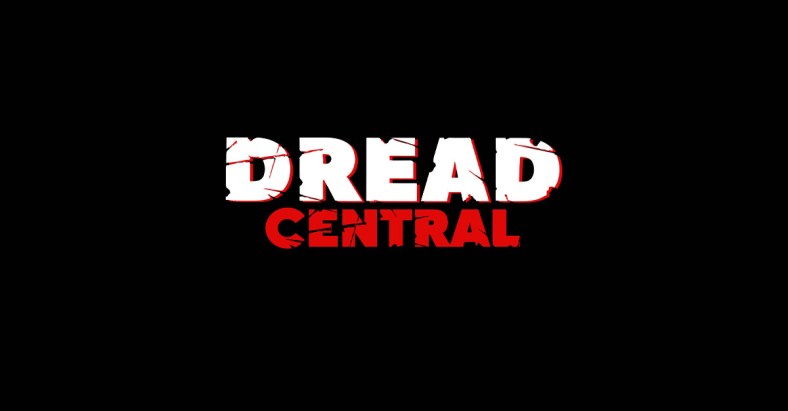
TT: And it uses New York brilliantly as a background. The Dakota. And all that atmospheric Roman Polanski stuff, and if you look at the film, very few moments of blood, but if you’re intelligent, and you dive into the film, it’s scary as hell, ’cause it could happen, starting with John Cassavetes as an actor who will sell his soul to get the right role. So I’m waiting for us, in 2018, ’19, to go to that next level of adult. As you said, usually great horror comes after war. We are at war within ourselves in this country. We are more divided than ever before.
Out of that division, though … there will be unification through art, through painting, through poetry, through the written word, through film, hopefully. And it can only get better.
But people have to be honest with themselves. They have to know what’s really frightening. What is true horror?
DC: To me that is true horror. To me, that’s the most terrifying thing about our current state of the world is this division as Americans. We’ve never felt more divided, from what I can see and that’s frightening because there are bigger threats out there other than our own political affiliations.
TT: It’s the fact that our elections could be hacked so shamelessly, and we’re not doing much about it frightens me because we live on a grid, and let’s imagine, what if ATMs were not available all of a sudden? What if supply chains weren’t delivering water and milk and eggs to supermarkets all of a sudden? Then what are people gonna do? Because I also feel that people are getting lazy … You stick a card, a piece of plastic, in a machine, and you get cash. You go on Amazon, and it’s there the next day. I grew up knowing that you had to work for whatever it is you wanted. It wasn’t instant. I’m not saying I’m anti-progress. I’m just saying sometimes, too much progress can stop us from being human.
DC: Yeah, exactly. A smooth sea does not make good sailors.
TT: Yeah. Gotta have a little conflict, a little tumble in your belly.
DC: Definitely. I mean, on the topic of Candyman and social awareness, when that movie came out, did you find that it was particularly relevant to the time period as far as any sort of social messages?
TT: Yeah, I did. I didn’t get as much flack. Like Bernard had a lot of flack from the NAACP. They wanted to see an advance script. They were just afraid that the image of a black boogeyman would be offensive, but they didn’t know what kind of film we were making. That’s a very intelligent film.
DC: I heard that you’re a big practical joker on set. Is that true?
TT: Yeah. When Tom Savini and I were working on Night of the Living Dead we would start the day doing magic tricks for each other. Also, once I’m sure that an actor on set is confident about what they’re doing and feel they have the role under their belt, the best way you can get them to bring out what they’ve already prepared is to shock them out of their system. Like if they ask for orange juice in the morning, put a little chocolate in there.
DC: So keeping people on their toes?
TT: Like a good boxer. And then, you get the best fight.
DC: Keeps them sharp, as an actor.
TT: Absolutely. [But] I’m also a protector. Bernard’s a genius. I understand him. Not everybody in the crew understood him, though. He did this whole hypnotism with Virginia, and it would take about 15 minutes. By the end of it, people were less enthusiastic.
DC: Whoa. He was hypnotizing Virginia Madsen on set?
TT: Yeah, yeah. It’s not a scoop. It’s been said before, but yeah, he was hypnotizing her.
DC: Wow.
TT: People wanted to put Ex-Lax in his coffee. We can’t have that. I can’t have that.
DC: You can’t do that on set.
TT: No, because that’s another day shooting, folks. Come on.
DC: As far as acting is concerned, is there any methodology that you return to, are you a method actor, for instance?
TT: Well, method is so broad, you know? But yeah, whatever method works for you. It’s all truth based, so it’s moment to moment. It’s the more life that you know, and cities like New York, Chicago, San Francisco, Seattle, Boston, which are all art-centric kind of places give you that opportunity to find what works.
DC: So being well rounded.
TT: Being well rounded. Being open, you know? I’m a big museum guy. There’s so much art out there for people. Spend time in the desert studying the rattlesnakes. Here in California, you know, you can travel 100 miles. It’s completely different terrain. A lot of people don’t do it. They just stay L.A. based. You could always do more.
DC: Yeah.
TT: You know, go to Solvang. You been to Solvang, yet?
DC: Solvang?
TT: Yeah, it’s outside of Santa Barbara. It’s a little Denmark town. It looks like a little Swiss village, 100 miles from here.
DC: I’ve never heard of it.
TT: So that’s what I’m saying. California’s an amazing state.
DC: Yeah.
TT: Yeah. Open up. In the last two months, I’ve seen 20 hummingbirds and 10 dragonflies.
DC: You’re a big music fan … are you a musician?
TT: I play guitar, but just for me. I take it on the road with me. That’s my pacifier … It makes you calm and it makes you peaceful.
DC: A lot of artists turn to music as a way to help all of their other arts, and it’s cathartic, and it keeps your brain sharp, and yeah. It’s a great tool.
TT: And even breathing. Breathing is a form of music. If you learn how to take the proper breath.
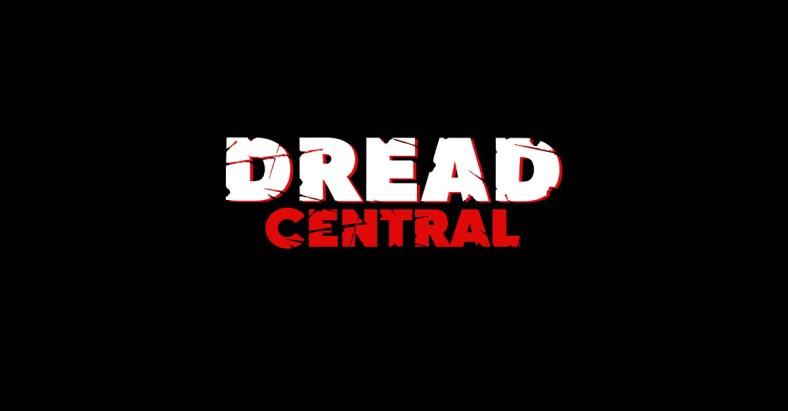
DC: I’m sure you’re getting tired of talking about this, but I do have to address the elephant in the room: Jordan Peele’s Candyman. Has he gotten in touch with you? What are your thoughts on the entire idea?
TT: Ten years ago, I would’ve been very protective and said, “No, that’s my character. I’m not gonna touch it.” But I’ve learned, you know, when they did the new Nightmare, and they’ve done their Jasons Vs. Freddies, and at one point, they suggested I do something against Leprechaun, and I said that’s the most ridiculous, small-minded …
DC: Candyman versus Leprechaun? You would’ve kicked his ass in the first five minutes. That would be a short film.
TT: I pooh-poohed it, but anyway, now I know that Jordan is a fan. He and I have never met, but like, Gregory [Plotkin, the editor of Get Out] told me, “Don’t worry. He hasn’t called him, either.” So I’m committed and resigned to the fact that I don’t own the character, but I have faith. I know that they will do the right thing, and I will be in it in some capacity, even if it’s just a producer.
DC: Great.
TT: But I think it’ll be a little bigger than that.
DC: Yeah.
TT: I was flattered by all the outpouring online about people, it seemed like 80% of them said it should only be me, I was really moved by that.
DC: You got a lot of loyal fans out there.
TT: Lot of loyal people out there, but then there were like, the five people that said, “Oh, I can’t wait for the new one,” and then they started listing other actors. That’s when I clicked off Twitter.
DC: Unfollow.
TT: Todd Bridges? What?
DC: What? Willis?
TT: Yeah, Willis. Whatchu talkin ’bout, Willis?
DC: Whatchu talkin ’bout, Candyman!? On that note, Mr. Todd, this has been a real honor. Thank you, sir.
TT: It’s been a great interview. Thank you.
Categorized: News
